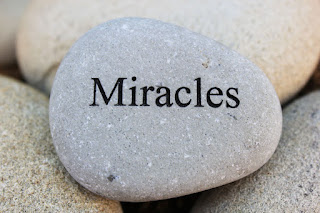Emerging
I struggle with discipline. I've been meaning to write. I look at a half-finished manuscript and think about where to begin - again. Relieved of response, I answer the phone and walk away from the work that waits. I water the pots and fill the bird feeder and sweep the floor as I ponder the ease of distraction.
I order another copy of my favorite book on writing-Bird by Bird by Anne Lamott. So witty, so real and poignant. She helps me laugh at myself and begin again. She says to write every day. Write something. Sit down at the same time every day and write. Put some thoughts down. And if no profound thoughts come, just write about the toast you had for breakfast or describe the workman outside your window spraying for weeds. Put the words down. No one will ever read it. Just observe and write. Why? Because something tugs at you.
So my writing exercise today is this: I've been thinking about the silver lining in our lives. These days, it seems every conversation of which I am a part, we agree on some silver lining as a result of pandemic isolation. The phrase "silver lining" can be defined as the good that comes out of bad, the bright side, or some kind of positive aspect that comes from a negative situation. We've all heard that every cloud has a silver lining. Now, I think, is the time we begin gathering the good, silver lining that is to be found from our year in seclusion. Yes, we must sift through much of the bad, but the good is there for those who work to find it.
As we begin to emerge from our cloud of pandemic isolation, I wonder what the silver linings will be for you. For me, just off the top of my head: Neighbors becoming better acquainted with one another. Exercising at home instead of going to the gym. Reading more books. Discovering more ways to cook chicken than thought possible. Dreaming of and planting a long-envisioned garden. "Zooming" with each other to keep the communication lines flowing for families, church/work committees, anniversary and birthday celebrations.
Like the butterfly, emerging takes time. And it does not happen without some effort or struggle involved. Like the butterfly, emerging has to happen in our own unique ways. For those of us who have survived we'll have to gradually let our barriers down, risk some interactions, take the baby steps in moving back into the world we love. For those who have experienced a harsher pandemic, it won't be so easy. Granted, the world won't be the same. We will miss some people we loved. We must mourn with those grieve. We must sift through all that was bad about this year and try to redeem all the good.
The question becomes, "Will I emerge from the cloud of isolation and be better as a result of it?" Even more important that those of us who managed to dodge the virus or financial loss, it is upon us to find every bit of good and share it however we can. We must never forget the tragedy of it all--lives lost, jobs lost, health lost, priorities rearranged. But if we can focus on all the silver linings, we can emerge as whole human beings, ready to fly - like the butterfly.
Light always overcomes darkness. Jesus said, "Behold, I am making all things new!"
To encourage you:
“For I know the plans I have for you, declares the Lord, plans for welfare and not for evil, to give you a future and a hope.”—Jeremiah 29:11
“The Lord your God is in your midst, a mighty one who will save; he will rejoice over you with gladness; he will quiet you by his love; he will exult over you with loud singing.”—Zephaniah 3:17
“May the God of hope fill you with all joy and peace in believing, so that by the power of the Holy Spirit you may abound in hope.”—Romans 15:13
“But they who wait for the Lord shall renew their strength; they shall mount up with wings like eagles; they shall run and not be weary; they shall walk and not faint.”—Isaiah 40:31
“Rejoice in hope, be patient in tribulation, be constant in prayer.”—Romans 12:12
“For this light momentary affliction is preparing for us an eternal weight of glory beyond all comparison, as we look not to the things that are seen but to the things that are unseen.”—2 Corinthians 4:17-18
“The sufferings of this present time are not worth comparing with the glory that is to be revealed to us.”—Romans 8:18
“He will wipe away every tear from their eyes, and death shall be no more, neither shall there be mourning, nor crying, nor pain anymore, for the former things have passed away.”—Revelation 21:4
“But this I call to mind, and therefore I have hope: The steadfast love of the Lord never ceases;his mercies never come to an end; they are new every morning; great is your faithfulness.”—Lamentations 3:21-23








